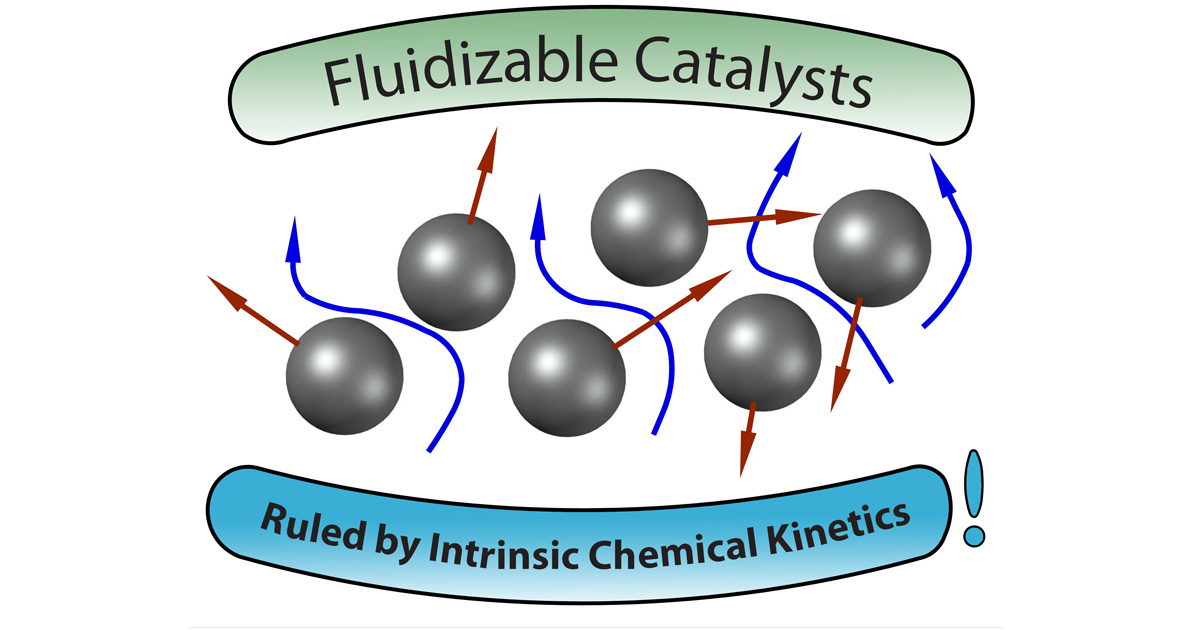Fluidizable Catalysts for Novel Chemical Processes, 2nd Edition
A special issue of Catalysts (ISSN 2073-4344). This special issue belongs to the section "Catalytic Reaction Engineering".
Deadline for manuscript submissions: 5 July 2026 | Viewed by 78

Special Issue Editors
Interests: catalysis; photocatalysis; reaction engineering; fluidized bed reactors
Special Issues, Collections and Topics in MDPI journals
Interests: fluidization; reaction engineering; chemical processes; machine learning; environmental engineering
Special Issues, Collections and Topics in MDPI journals
Special Issue Information
Dear Colleagues,
Following the success of the first edition of this Special Issue, entitled “Fluidizable Catalysts for Novel Chemical Processes” (available at https://www.mdpi.com/journal/catalysts/special_issues/MF3MM41X0Q), we are pleased to announce a second edition, entitled “Fluidizable Catalysts for Novel Chemical Processes, 2nd Edition”.
Fluidizable catalysts offer unique opportunities to develop valuable new green and environmentally friendly catalytic chemical processes. Fluidizable catalysts frequently display the outstanding property of their performance not being influenced by intraparticle mass transport and heat transport processes. Thus, they provide a much more reliable catalytic performance than traditional catalysts for non-fluidized bed processes. Fluidizable catalysts can be employed to degrade harmful and toxic pollutants. They can also be the basis of new catalytic and sustainable processes, achieving chemical changes with lower energy demands, and consequently reduced environmental impact (e.g., CO2 emissions). Another promising application of fluidizable catalysts is hydrogen production. The hydrogen generated can be used as a source of green energy that can be made available to isolated towns and agricultural communities around the world.
Despite their promise, there are still major issues that need to be considered in the development of successful catalysts and to scale-up the catalytic process unit. These issues can be addressed by evaluating a new generation of industrial-scale fluidized bed systems, with high feedstock throughputs, such as riser or downer catalytic units. It is anticipated that these low-particle-density fluidized beds will be able to be engineered with closely controlled reaction times and reaction conditions (reactant partial pressures, temperatures, and catalyst/reactant ratios), allowing for catalytic reactions to take place, determined by intrinsic reaction mechanisms and kinetics.
The aim of this Special Issue is to report recent progress on the following key topics concerning fluidized catalysts: (a) their synthesis, characterization, and development; (b) their kinetics and reaction mechanisms; (c) their conversion and selectivity; and (d) how new catalysts dilute fluidized catalytic reactor designs with high reactant throughputs.
We welcome the submission of cutting-edge research papers, critical reviews, and short communications. Papers can be supported with supplementary materials, such as videos and additional data. We are confident that the manuscripts published in this Special Issue will advance research in this very important area of catalytic reaction engineering. Thus, we look forward to receiving your valuable research contributions.
Dr. Hugo de Lasa
Dr. Nicolas Torres Brauer
Guest Editors
Manuscript Submission Information
Manuscripts should be submitted online at www.mdpi.com by registering and logging in to this website. Once you are registered, click here to go to the submission form. Manuscripts can be submitted until the deadline. All submissions that pass pre-check are peer-reviewed. Accepted papers will be published continuously in the journal (as soon as accepted) and will be listed together on the special issue website. Research articles, review articles as well as short communications are invited. For planned papers, a title and short abstract (about 250 words) can be sent to the Editorial Office for assessment.
Submitted manuscripts should not have been published previously, nor be under consideration for publication elsewhere (except conference proceedings papers). All manuscripts are thoroughly refereed through a single-blind peer-review process. A guide for authors and other relevant information for submission of manuscripts is available on the Instructions for Authors page. Catalysts is an international peer-reviewed open access monthly journal published by MDPI.
Please visit the Instructions for Authors page before submitting a manuscript. The Article Processing Charge (APC) for publication in this open access journal is 2200 CHF (Swiss Francs). Submitted papers should be well formatted and use good English. Authors may use MDPI's English editing service prior to publication or during author revisions.
Keywords
- catalysts
- fluidizable catalysts
- fluidizable catalyst synthesis
- fluidizable catalyst characterization
- fluidizable catalyst performance
- fluidizable catalyst kinetics
Benefits of Publishing in a Special Issue
- Ease of navigation: Grouping papers by topic helps scholars navigate broad scope journals more efficiently.
- Greater discoverability: Special Issues support the reach and impact of scientific research. Articles in Special Issues are more discoverable and cited more frequently.
- Expansion of research network: Special Issues facilitate connections among authors, fostering scientific collaborations.
- External promotion: Articles in Special Issues are often promoted through the journal's social media, increasing their visibility.
- Reprint: MDPI Books provides the opportunity to republish successful Special Issues in book format, both online and in print.
Further information on MDPI's Special Issue policies can be found here.
Related Special Issue
- Fluidizable Catalysts for Novel Chemical Processes in Catalysts (8 articles)






